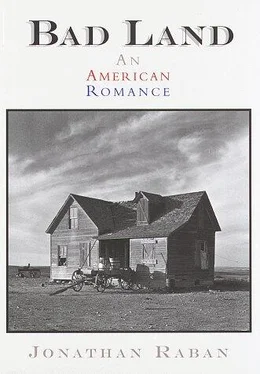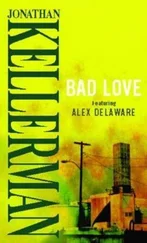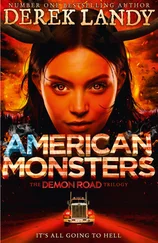That evening a lightning storm moved in on Baker from the west. One could see it coming for an hour before it hit: the distant artillery flashes on a sky of deep episcopal purple. As the storm advanced, I sat in a bar on Main Street, reading the life of Patrick Henry in Four American Patriots: A Book for Young Americans by Alma Holman Burton.
“Colonel Washington,” said Mr. Davies, “is only twenty-three years old. I cannot but hope that Providence has preserved the youth in so signal a manner for some important service to his country.”
“Ah,” thought Patrick, “George Washington has done so much for his country, and he is only twenty-three!”
The people in the bar were huddled and talkative: living by day in so much space and solitude, they evidently liked to squash up close at night. At the back of the place, two poker tables were in session, with the players gossiping unprofessionally between reckless bids of 50¢ a time. The slogan in scabbed paint on the bar door announced, Liquor Up Front, Poker in the Rear .
He looked down at his hands. They were brown and rough with toil.
“Alas!” he said, “I do my best, and yet I cannot even make a living on my little farm!”
This was quite true.
Patrick could not make his crops grow. Then his house caught fire and burned to the ground. It was all very discouraging!
The snippets of bar conversation were, on the whole, more interesting than Alma Holman Burton’s prose. A Mexican seated at the table next to me was talking to a scrawny, pencil-mustached, thirtyish type, perched on a swivel stool at the bar. The Mexican said he was up in Baker from Wilmer, Texas.
“ Wilmer? ” said the guy at the bar, in a whoop of delighted recognition. “I know Wilmer! I was in jail in Wilmer. Buy you a drink, man?”
And so, at the age of twenty-three, Patrick Henry, with a wife and little children to provide for, did not have a shilling in his pocket. But his father helped a little and Sarah’s father helped a little, and they managed to keep the wolf from the door …
… which would not have been a dead metaphor to a child in eastern Montana, where wolves picked off the sheep at nights and “wolfers” trapped the animals for bounty.
The thunder was directly overhead, and it was immediately followed by a long kettledrum tattoo of rain on the roof. The bar went quiet. Everyone in it listened to the rain.
“It’s a gulleywasher,” the bartender said, gathering in the empties.
The thunder rolled away eastward, toward North Dakota, but the rain kept coming.
“It’s a gulleywasher,” said the man who’d done jail time in Wilmer, as if he had just minted the expression.
A crowd formed at the open doorway of the bar to watch the downpour. The rain fell in gleaming rods. Main Street was a tumbling river, already out of its banks and spilling over onto the sidewalk. Its greasy waters were colored red, white and blue by the neon signs in the bar window. A truck sloshed past at crawling speed, throwing up a wake that broke against the doors of darkened stores.
“ That ,” said a turnip-faced old brute in a Stetson, speaking in the voice of long and hard experience, “is a gulleywasher.”
People craned to see. A couple had brought their toddler along (this was an easygoing bar in an easygoing town); the man lifted her onto his shoulders to give her a grandstand view of the wonder. The rain made everyone young: people dropped their guard in its presence, and the pleasure in their faces was as empty of self-consciousness as that of the toddler, who bounced against her father’s neck, saying, “Water. Water. Water.” Some shook their heads slowly from side to side, their faces possessed by the same aimless smile. Some whistled softly through their teeth. A woman laughed; a low cigarette-stoked laugh that sounded uncannily like the hiss and crackle of the rain itself.
It went on raining. It was still raining when I drove back to the motel, where the forecourt was awash and the kitchen carpet blackly sodden. I sat up listening to it, attuned now to what I ought to hear. When rain falls in these parts, in what used to be known as the Great American Desert, it falls with the weight of an astounding gift. It falls like money.
FROM THE SPRING OF 1907 through the fall of 1908, the Milwaukee Road railroad lumbered through the Dakotas and into Montana. From the top of any butte, one would have seen its course through the Badlands: the lines of horse-drawn wagons, the heaps of broken rock for the roadbed, the gangs of laborers, engineers, surveyors. From a distance, the construction of the new line looked like a disaster of war.
The Milwaukee Road was a latecomer among western rail-roads. In 1881, the Northern Pacific reached Montana, where it hitched itself to the convenient valley of the Yellowstone River. In 1887, the Great Northern arrived; it clung to the Missouri River, winding westward to Great Falls. The Milwaukee Road, striking west-by-north through rough country, had to content itself with whatever creeks and coulees it could find. In Montana, it slipped from Waterhole Creek to Sandstone Creek to O’Fallon Creek, a muddy brook where catfish rootled in the shade of the crowding cottonwood trees. The new railroad followed the creek down to the Yellowstone, where it joined company with the Northern Pacific at Terry.
As the line advanced across the land, it flung infant cities into being at intervals of a dozen miles or so. Trairts needed to be loaded with freight and passengers, and it was part of the essential business of the railroad company to furnish its territory with customers, to create ready-made communities of people whose lives would be dependent on the umbilical of the line. So the company built these skeletal market centers on company-owned land. Its creations were as arbitrary as those described in Genesis. The company said, Let there be a city: and there was a city.
Each was a duplicate of the last. Main Street was a line of boxes, wood and brick, laid out on the prairie, transverse to the railroad line. The numbered streets, pegged out with stakes and string, ran north-to-south; projective avenues ran east-to-west. The boxes housed a post office, a hotel, a saloon, a general store, a saddlery, a barbershop, a church, a bank, a schoolhouse and a jail. Beside the line, sites were earmarked for the grain elevator and the stockyard. With the addition of a few shacks, dotted about between the pegs and the strings, the city was done. Photographed from the right angle, with railroad workers doubling as citizens, it could be promoted as the coming place in the New West.
This part of Montana had been named long ago — by the Indians, by the U.S. Army and by the ranchers, who had raised cattle, sheep and horses here for the last forty years. But the railroad was interested only in the brilliant future that it was bringing to the country, and it scorned the past. It ignored the existing names, preferring to adorn the landscape with bright new coinages of its own — the better to commemorate the historic achievement of the Milwaukee Road in bringing twentieth-century civilization to the naked prairie.
Searching for suitably beautiful names for its new cities, the company canvased its directors and senior managers for the names they had given their daughters. The President of the railroad, Albert J. Earling, had two daughters, Isabel and May. The girls were fused to produce Ismay, which sounded modern and tripping on the tongue. The recent offspring of other Milwaukee Road officials included a Lorraine, an Edina and a Mildred.
At Lorraine, the first of the Montana towns, the company dammed three springs to create a civic lake and a reliable source of water for the locomotives. Lorraine’s father must have suddenly fallen out of favor with the board, for Lorraine was Lorraine for only a few weeks before it was renamed Baker, in recognition of A. G. Baker, the chief construction engineer on the project. Edina, thirteen miles down the line, went the same way as Lorraine. There, a crew of Bulgarian workers lobbied to have the city renamed Plevna. Nineteen hundred and eight was the year of the declaration of Bulgarian independence from Turkey, and Plevna, liberated by Russian troops from its Turkish occupiers in 1877, was a name dear to Bulgarian nationalists. At Plevna, Montana, the Milwaukee Road did honor the past — but it was the obscure European past, not the American past, that received the tribute. The odd mouthful of consonants gave the place a touch of old-world class.
Читать дальше












